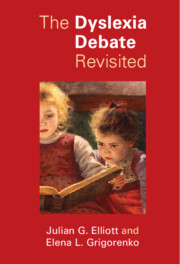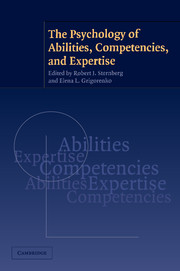The Dyslexia Debate Revisited
In every country, and in every language, a significant proportion of children struggle to master the skill of reading. In 2014, The Dyslexia Debate examined the problematic interpretation of the term 'dyslexia' as well as questioning its efficacy as a diagnosis. Ten years on, The Dyslexia Debate Revisited reflects on the changes in dyslexia assessment and treatment over the last decade, including the introduction of dyslexia legislation in many US states. Addressing the critical responses to their original challenge of the dyslexia construct, Julian G. Elliott and Elena L. Grigorenko also consider why, despite scientific critiques, existing dyslexia conceptions and assessment practices continue to be highly attractive to many professionals, individuals, and families. Based on current scientific knowledge, the authors strive to promote a shared understanding of reading difficulties and emphasize the importance of providing timely and appropriate intervention and support to anyone who faces difficulties with learning to read.
- Following a surge in interest fueled by social media and the rise of neurodiverse accounts of learning difficulties, this book offers the ultimate state-of-the-art review of the field of dyslexia
- Presents detailed and integrated accounts of research findings in education, psychology, neuroscience, and genetics, emphasizing the importance of scientific knowledge and explaining why it is often overlooked, ignored, or misrepresented in many popular conceptions of dyslexia
- Makes a compelling case for reducing practices that only benefit a small number and advocates for addressing the unmet needs of a much greater proportion of struggling readers
Reviews & endorsements
‘Regardless of your view of the debate they present, there are some particularly useful chapters in this book that are definitely worth reading.’ Dyslexia Review
‘Elliott and Grigorenko maintain their critical stance but provide updated conclusions and constructive recommendations, making this work essential reading for researchers, practitioners, and policymakers alike. Their call for a more nuanced, needs-based framework contributes meaningfully to ongoing debates in the field. … Highly recommended.’ T. B. H. Brown, CHOICE
Product details
June 2024Hardback
9781316514443
452 pages
235 × 157 × 28 mm
0.78kg
Available
Table of Contents
- Preface
- Foreword by Jack Fletcher
- 1. What is dyslexia?
- 2. Explanations at the cognitive level
- 3. The neurobiological bases of reading disability
- 4. Assessment, instruction and intervention
- 5. Dyslexia: the power of the label
- 6. Conclusions and recommendations
- References
- Index.



